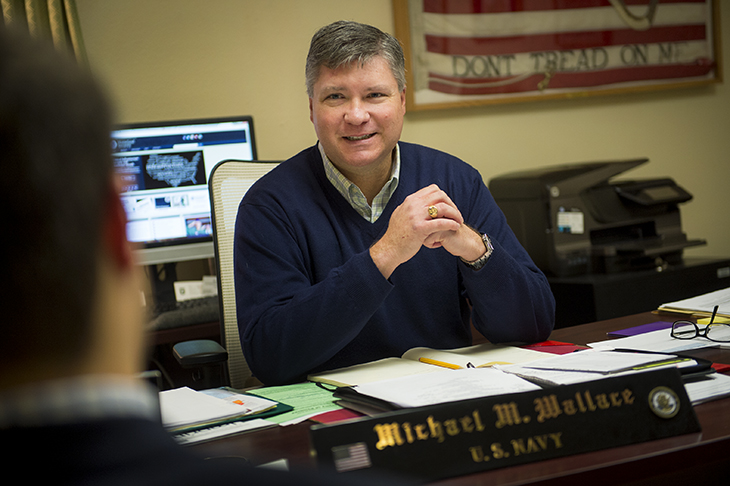Intelligence leads to security

Michael Wallace has been running the Homeland Security Studies program in the Tulane School of Continuing Studies since June 20. (Photo by Paula Burch-Celentano)
Michael Wallace"s resume reads like something out of a spy thriller, his career as a military intelligence officer taking him from the Pacific Fleet at Pearl Harbor to the Joint Chiefs of Staff at the Pentagon. His expertise includes counter-terrorism, counter-proliferation and intelligence collection and analysis.
But these days, his office is at Tulane University, where he runs the Homeland Security Studies program of the School of Continuing Studies.
“This is my dream job,” said Wallace, who received his Master of Liberal Arts with a concentration in international studies from Tulane in 1999.
With plans to retire from the military after 20 years and move to New Orleans, where his wife is from, Wallace was in the right place at the right time to land the Tulane job. Having done a stint as an adjunct lecturer, he was well acquainted with the program and previous director Keith Amacker, who was retiring.
“When he sent out an announcement that he was leaving, I knew this was a job I wanted to pursue,” Wallace said.
Although he has been on the job for only five months, he is impressed with the quality of students and instructors as well as the course offerings, everything from intelligence gathering and analysis to counter-terrorism, or as he says, “figuring out who the bad people are and how to stop them.”
The program also offers emergency management and homeland defense classes, and special-topic classes like white-collar crime and weapons of mass destruction. Currently, there are more than 200 students taking classes, with about 110 undergraduate and graduate students seeking degrees.
After he attended a conference of homeland security educators, Wallace felt certain that Tulane has one of the strongest programs in the country.
“As opposed to strictly online programs, our students actually get out into the field and participate in real-world exercises,” he said.
